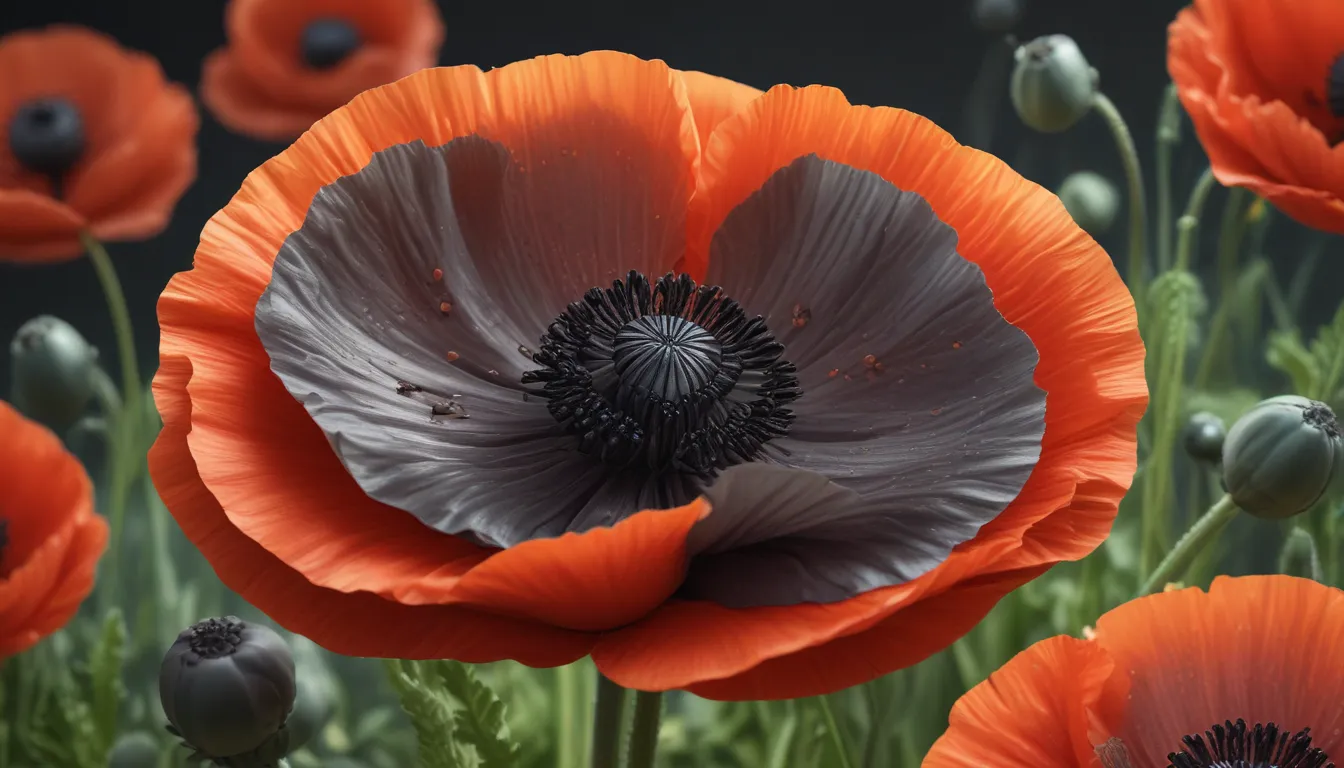The pictures in our articles might not always show exactly what the text is talking about. We use these images to make the article more interesting and eye-catching. They are there to add to the text, but not to replace it or show every detail.
Poppy seeds may be small, but they are mighty in both flavor and nutrition. Derived from the opium poppy plant, these tiny seeds have been a staple in cuisines around the world for centuries. In this article, we will uncover 20 captivating facts about poppy seeds that will make you appreciate this humble ingredient even more. From their rich history to their nutritional value and surprising trivia, there's a lot to learn about these powerful seeds. So, let's dig in and discover the secrets behind the mighty poppy seed!
The Origin of Poppy Seeds
- Poppy seeds come from the opium poppy plant, scientifically known as Papaver somniferum. These small, kidney-shaped seeds are harvested from the pod of the plant.
A Rich History
- Poppy seeds have a long history, with evidence of their cultivation dating back to ancient civilizations such as the Egyptians and the Sumerians.
Culinary Uses
- Poppy seeds are commonly used as a topping for breads, pastries, and bagels, adding a nutty flavor and crunchy texture to dishes. They are also used in various cuisines as a spice or thickening agent.
Nutritional Value
- Poppy seeds are a rich source of essential nutrients such as dietary fiber, protein, magnesium, and calcium. They also contain antioxidants and healthy fats.
Subtle Flavor Profile
- The flavor of poppy seeds is mild and slightly sweet, making them a versatile addition to both sweet and savory dishes.
Traditional Uses in Medicine
- In traditional medicine, poppy seeds have been used to alleviate pain, promote sleep, and provide relief from various ailments. However, scientific evidence supporting these claims is limited.
Poppy Seed Oil
- Poppy seed oil, also known as opium poppy seed oil, is extracted from the seeds and has various culinary and medicinal applications.
Popular in Baking
- Poppy seeds are a popular ingredient in baking, adding flavor and texture to cakes, muffins, cookies, and other desserts.
Cultural Significance
- Poppy seeds are a common ingredient in Indian cuisine, known as khus khus, used to add flavor and texture to curries, gravies, and desserts.
Easter Bread Tradition
- In many Eastern European countries, poppy seeds are a key ingredient in traditional Easter bread recipes, symbolizing abundance and prosperity.
Digestive Health Benefits
- Due to their high fiber content, poppy seeds can aid in digestion and promote a healthy digestive system.
Natural Dye
- The dark blue or grayish color of poppy seeds can be used as a natural dye for fabric, food, and cosmetics.
Ancient Religious Use
- Poppy seeds have been used in ancient religious ceremonies as offerings or to induce altered states of consciousness.
Symbol of Fertility
- In many cultures, poppy seeds are seen as a symbol of fertility, abundance, and prosperity.
Regulatory Measures
- Poppy seed cultivation is regulated in some countries due to the presence of opiate alkaloids, to prevent misuse of the plant.
Caution During Pregnancy
- Consumption of large amounts of poppy seeds during pregnancy is not advised due to the presence of opiate alkaloids and potential effects on the unborn baby.
Traditional Folk Remedies
- In folk medicine, poppy seeds have been used to alleviate toothaches, headaches, and promote relaxation and restful sleep.
Global Popularity
- Poppy seeds are used in various cuisines around the world, from European pastries to Middle Eastern delicacies and Asian dishes.
Conclusion
Poppy seeds are more than just a topping for baked goods. They have a rich history, offer numerous health benefits, and can be used in various culinary dishes. Whether you're a fan of their taste or looking to incorporate them into your diet, poppy seeds are a versatile and nutritious ingredient worth exploring.
So, next time you enjoy a poppy seed bagel or sprinkle some on your salad, take a moment to appreciate the fascinating facts about poppy seeds. From their ancient origins to potential health benefits, these tiny seeds have a story to tell and a lot to offer our culinary experiences.
FAQs
- Are poppy seeds the same as opium?
-
Poppy seeds come from the same plant as opium but do not contain psychoactive compounds.
-
Are poppy seeds addictive?
-
Consuming poppy seeds in reasonable amounts is not addictive.
-
Can poppy seeds cause a positive drug test?
-
Consuming large amounts of poppy seeds may result in a positive drug test for opiates in rare cases.
-
How should poppy seeds be stored?
-
Poppy seeds should be stored in an airtight container in a cool, dark place to maintain their freshness.
-
Can poppy seeds have health benefits?
-
Poppy seeds are a good source of nutrients and may support digestion, heart health, and overall well-being.
-
Any culinary uses beyond baking?
- Poppy seeds can be added to salads, dressings, spreads, sauces, and savory dishes.
Explore the versatility of poppy seeds with Boulangerie Grissol Artisanal Crisps, offering a tasty crunch with cranberries and poppy seeds. Whether you're a cooking aficionado or just curious, there's always more to discover about these tiny yet potent seeds.






